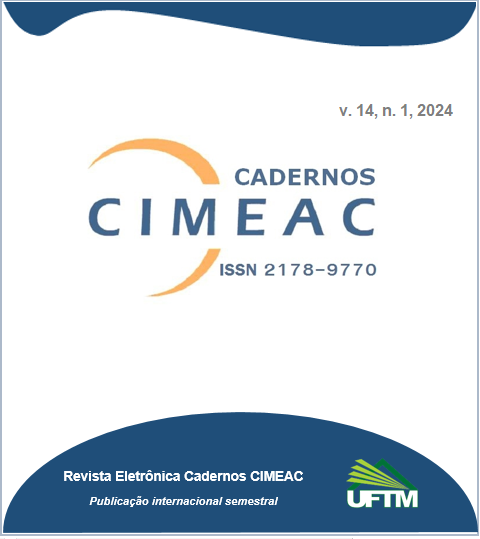Ensino de Química via Atividade Experimental Problematizada (AEP): análise narrativa de uma pesquisa-intervenção
DOI:
https://doi.org/10.18554/cimeac.v14i1.7023Abstract
Teaching methods are strongly linked to the presentation of concepts and, often, do not allow students to dialogue with each other about the themes addressed in the classroom, characterizing them as passive agents, who receive ready and definitive content from their teachers. In the area of Science, particularly in Chemistry, there is a perceptible difficulty in bringing together knowledge from the classroom and everyday life, and fostering meaningful learning. Aware of this scenario, this work had as its research center the use of the Problematized Experimental Activity (PEA) for the development of a learning guided by the promotion of dialogue. The target audience were first-year High School students at a school in Caçapava do Sul/RS, considering the content of Inorganic Functions. The instruments for generating and analyzing information were the audio capture of the seminar proposed after the activities, followed by the transcription of the recording of the speeches, which were analyzed using the Discursive Textual Analysis (DTA) methodology. The emerging debate was enriching and showed that students and teachers had difficulties in understanding the methodology, in view of its aspects of innovation and creation. However, it sharpened curiosity and showed the preference of students and teachers in the use of experimentation via PEA in Chemistry teaching. Therefore, we consolidated an intervention proposal capable of favoring significant learning and shedding light on other didactic-pedagogical understandings and possibilities.
Downloads
Published
Issue
Section
License
Os autores que publicam nesta revista concordam com os seguintes termos:
(a) Não cobramos dos autores para a publicação neste periódico.
(b) Autores mantém os direitos autorais e concedem à revista o direito de primeira publicação, com o trabalho simultaneamente licenciado sob a Licença Creative Commons que permite o compartilhamento do trabalho com reconhecimento da autoria e publicação inicial nesta revista.
(c) Autores têm permissão e são estimulados a difundir e a distribuir a versão publicada de seu trabalho online (ex.: em repositórios institucionais ou na sua página pessoal) após o processo editorial, já que isso pode aumentar o impacto e a citação do trabalho publicado (Veja O Efeito do Acesso Livre).
* * *
AUTHORS COPYRIGHT AND PUBLISHING RIGHTS
Authors who publish with this journal agree to the following terms:
(a) This journal does not charge authors for publication.
(b) Authors retain copyright and grant the journal right of first publication with the work simultaneously licensed under a Creative Commons Attribution License that allows others to share the work with an acknowledgement of the work's authorship and initial publication in this journal.
(c) For authors whose articles have been accepted: authors are permitted and encouraged to post their work online (e.g., in institutional repositories or on their website) after the publication of the text in Cadernos CIMEAC, as it can lead to productive exchanges as well as earlier and greater citation of published work (See The Effect of Open Access).

 10.18554/cimeac
10.18554/cimeac

